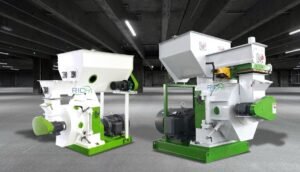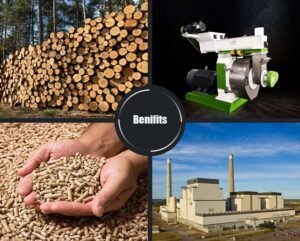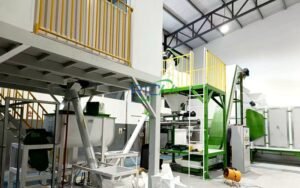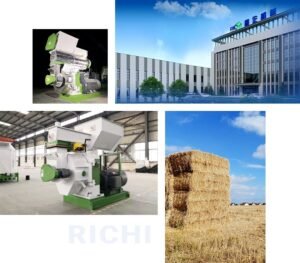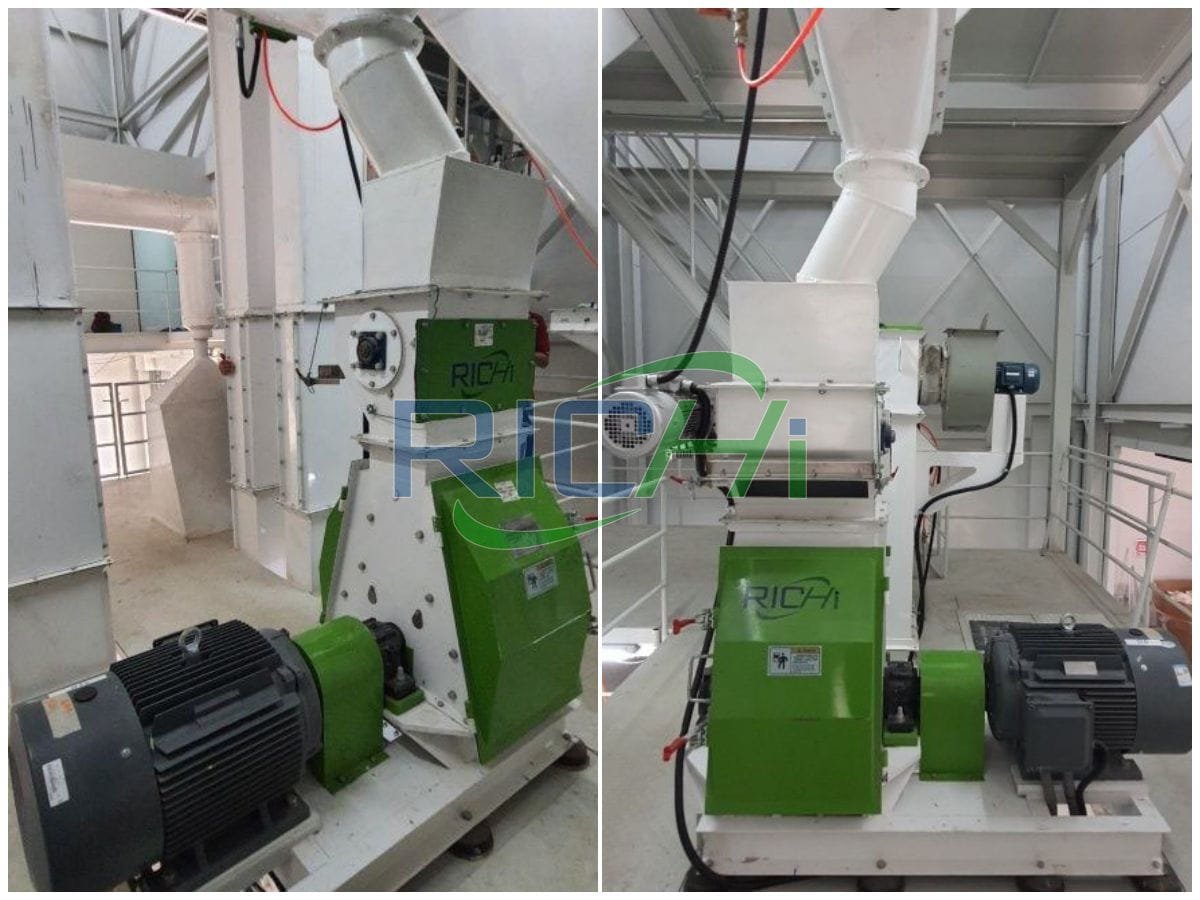
Wood pellet hammer mills play a crucial role in the biomass processing industry, transforming raw materials into fine particles suitable for pellet production. These mills are primarily powered by either electricity or diesel, with each type serving the same fundamental purpose. However, significant differences exist between electric and diesel hammer mills, often making electric models the preferred choice. This article delves into the distinctions between these two types of wood pellet hammer mills and highlights the reasons why electric variants are generally superior.
Power Source and Efficiency
The most evident difference between electric and diesel hammer mills lies in their power sources:
- Electric Hammer Mills:
- Operate using electricity through an electric motor.
- Tend to be more energy-efficient.
- Provide consistent power output.
- Diesel Hammer Mills:
- Powered by a diesel engine.
- Typically less energy-efficient due to combustion losses.
- Power output can fluctuate based on engine performance.
Electric hammer mills, such as those from Biopellet Machine, generally exhibit higher energy efficiency, converting a greater percentage of input energy into mechanical work, leading to lower operational costs over time.
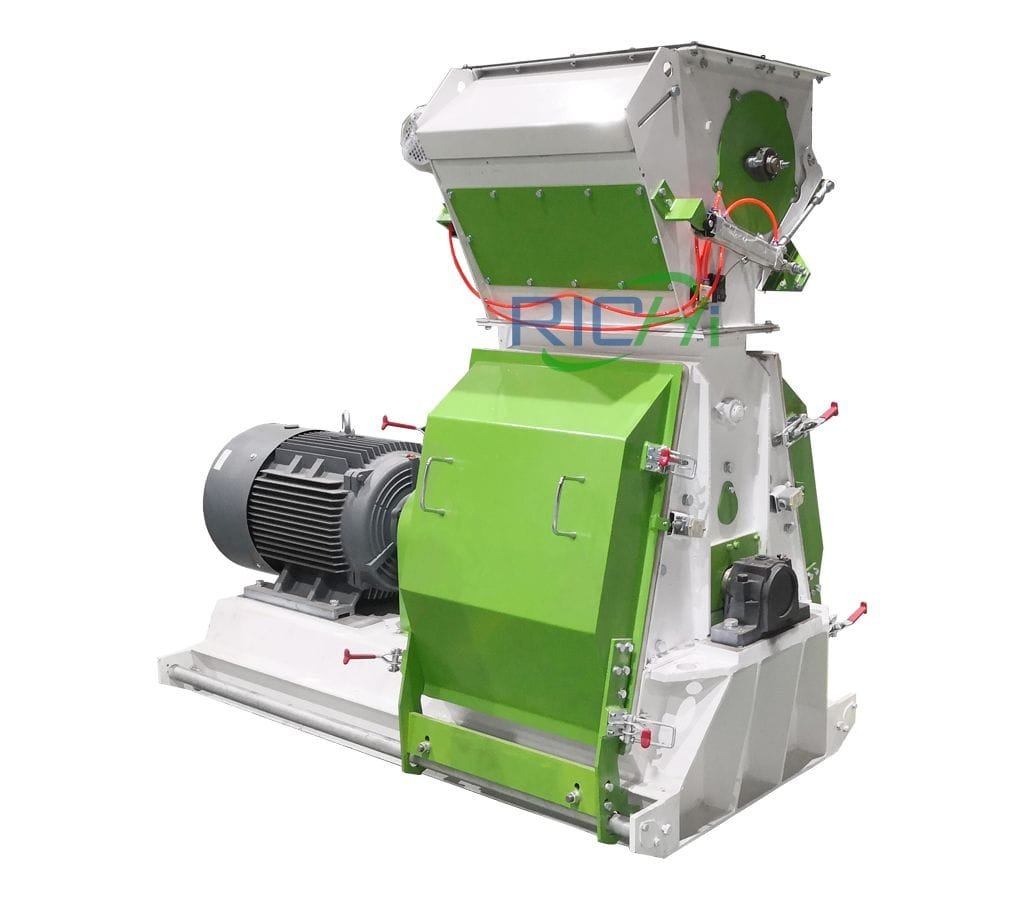
Operational Costs
When it comes to ongoing operational expenses:
- Electric Hammer Mills:
- Lower fuel costs in most areas due to cheaper electricity rates.
- Reduced maintenance requirements.
- No need for fuel storage or handling.
- Diesel Hammer Mills:
- Higher fuel costs stemming from diesel prices.
- More frequent maintenance required due to engine complexity.
- Necessitate fuel storage and handling facilities.
For instance, the CF500B electric wood hammer mill from RICHI Machinery demonstrates high efficiency with lower operational costs compared to diesel alternatives.
Environmental Impact
Environmental considerations are increasingly significant:
- Electric Hammer Mills:
- Produce zero direct emissions.
- Potentially achieve zero emissions if powered by renewable energy sources.
- Operate more quietly, reducing noise pollution.
- Diesel Hammer Mills:
- Emit pollutants, including CO2 and particulates.
- Contribute to air pollution.
- Exhibit noisier operations.
Electric models stand out in terms of environmental impact, aligning with growing sustainability concerns in the industry.
Maintenance and Reliability
Maintenance needs vary significantly:
- Electric Hammer Mills:
- Fewer moving parts, resulting in less wear and tear.
- Require less frequent maintenance and incur lower costs.
- Offer higher reliability and longer lifespans.
- Diesel Hammer Mills:
- Complex engine systems that demand regular maintenance.
- Higher risk of breakdowns due to the presence of more components.
- Tend to have shorter lifespans due to engine wear.
The simpler design of electric hammer mills, such as those in the CF series from Biopellet Machine, enhances reliability and minimizes downtime.
Performance and Consistency
In terms of performance:
- Electric Hammer Mills:
- Provide consistent power output, resulting in uniform particle sizes.
- Allow for instant start-up and shut-down capabilities.
- Offer better control over grinding speed and fineness.
- Diesel Hammer Mills:
- Experience variability in power output with engine temperature and conditions.
- Require warm-up and cool-down periods.
- Exhibit less precise control over grinding parameters.
The consistent performance of electric models ensures a more uniform end product, which is crucial for high-quality pellet production.
Versatility and Adaptability
Regarding adaptability to different environments:
- Electric Hammer Mills:
- Suitable for both indoor and outdoor use.
- Can be easily integrated into automated systems.
- Adaptable to various power supply configurations.
- Diesel Hammer Mills:
- Primarily designed for outdoor or well-ventilated areas due to emissions.
- Less compatible with automated systems.
- Limited by the availability and storage of fuel.
Electric hammer mills provide greater flexibility in installation and usage, making them suitable for a wider range of applications.
Initial Investment
Initial costs can differ:
- Electric Hammer Mills:
- Generally lower upfront costs.
- Simpler installation process.
- May require electrical infrastructure upgrades.
- Diesel Hammer Mills:
- Higher initial purchase costs.
- More complex installation, including fuel storage systems.
- No additional infrastructure needed if fuel is readily available.
Although electric models may require electrical upgrades, their lower initial costs and simpler installation typically make them more economical. (Related post: wood chipper cost)
Safety Considerations
Safety is a critical factor:
- Electric Hammer Mills:
- Do not involve fuel storage risks.
- Present a lower fire hazard.
- Safer for use in enclosed spaces.
- Diesel Hammer Mills:
- Involve risks associated with fuel storage and handling.
- Present a higher fire risk due to combustible fuel.
- Emissions pose health risks in confined spaces.
The safety advantages of electric hammer mills are substantial, particularly for indoor operations.
Conclusion
While both electric and diesel wood pellet hammer mills have their roles in the industry, electric models generally offer superior advantages. They provide higher energy efficiency, lower operational costs, reduced environmental impact, easier maintenance, more consistent performance, greater versatility, and enhanced safety features.
The benefits of electric hammer mills align well with current trends toward sustainability, cost-effectiveness, and operational efficiency in the biomass processing sector. Models like the CF500B from Biopellet Machine exemplify how electric hammer mills represent the future of wood pellet production technology.
For businesses contemplating an investment in a wood pellet hammer mill, the electric option often emerges as the better choice. It offers a more sustainable, efficient, and cost-effective solution for long-term operation. As the industry continues to evolve, the advantages of electric hammer mills are likely to become increasingly pronounced, solidifying their position as the preferred choice for wood pellet production.
